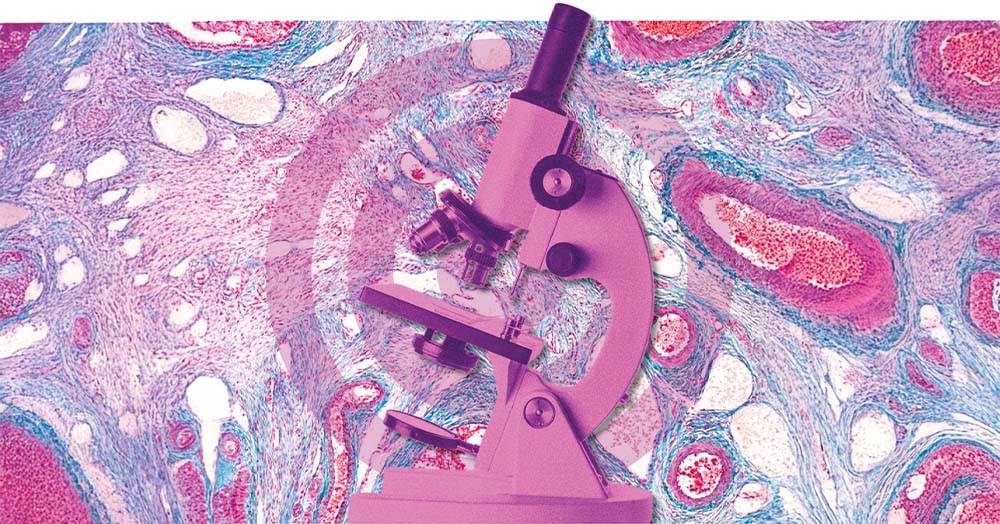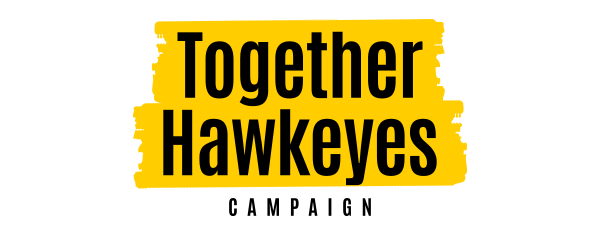New Iowa Pharmacy Dean Sets Sights on Ovarian Cancer Therapy
 PHOTO ILLUSTRATION: NICK BEECHER
PHOTO ILLUSTRATION: NICK BEECHER
Treatment for ovarian cancer has not changed significantly in 40 years, says Jill Kolesar, dean and professor at the University of Iowa College of Pharmacy. But Kolesar and her team are working to change that, with support from an $8.8 million federal grant awarded in 2024 as part of a program to close the gaps in women’s health research.
 Jill Kolesar, dean of the University of Iowa College of Pharmacy
Jill Kolesar, dean of the University of Iowa College of Pharmacy
The funding will allow UI Health Care to offer the world’s first clinical trial of a new therapy for those with recurrent ovarian cancer. Scheduled to begin in 2026, the initial phase will involve nine to 15 patients, says Kolesar, the Jean M. Schmidt Chair in Drug Discovery.
The Advanced Research Projects Agency for Health (ARPA-H) Sprint for Women’s Health awarded grants to 23 research teams worldwide from more than 1,700 applicants. Announced by First Lady Jill Biden in February 2024, the initiative provided more than $110 million to qualified teams working in six areas.
The innovative treatment to be tested at the UI recruits a patient’s own cellular messengers, known as extracellular vesicles (EVs), to target white blood cells in tumor clusters and “change them from cancer-supporting to cancer-fighting,” according to the grant summary. Researchers have been interested in using EVs to fight disease for a long time, but EVs are so tiny that it’s difficult to isolate them effectively, says Kolesar.
Before joining the UI in July 2024, Kolesar collaborated with colleague Chris Richards at the University of Kentucky to develop a technique to create about 3,000 EVs from a single cell, a thousandfold increase from the previous technique, she says. Richards received $1.2 million from the ARPA-H to continue to refine this patent-pending process.
Kolesar’s team also includes UI Health Care’s Michael Goodheart (01F, 02F, 05F), a gynecologic oncologist; George Weiner, a physician-scientist specializing in cancer immunotherapy; the DeGowin Blood Center; and Holden Comprehensive Cancer Center, which Weiner directed for many years. So far, the multimillion-dollar grant has allowed the team to hire two people and buy essential equipment.
“It’s always hit home what a bad disease [ovarian cancer] is,” says Kolesar, who has several relatives and a childhood neighbor who battled the disease. It’s often discovered at an advanced stage, and although most patients benefit initially from chemotherapy, 80% experience a recurrence two to five years later, she says. The American Cancer Society estimated there were 19,680 new diagnoses of ovarian cancer and 12,740 deaths in the U.S. during 2024. Kolesar says she is hopeful the UI’s research will “open the door on a new type of therapy.”
The College of Pharmacy’s strong reputation for educating future generations of pharmacists attracted Kolesar to the UI. So did UI Pharmaceuticals, the country’s only university-affiliated, Food and Drug Administration-registered pharmaceutical manufacturing facility. A Wisconsin native, Kolesar says she’s delighted to be back in the Midwest and hopes the Sprint for Women’s Health grant will “catalyze drug discovery and development” in Iowa City.

